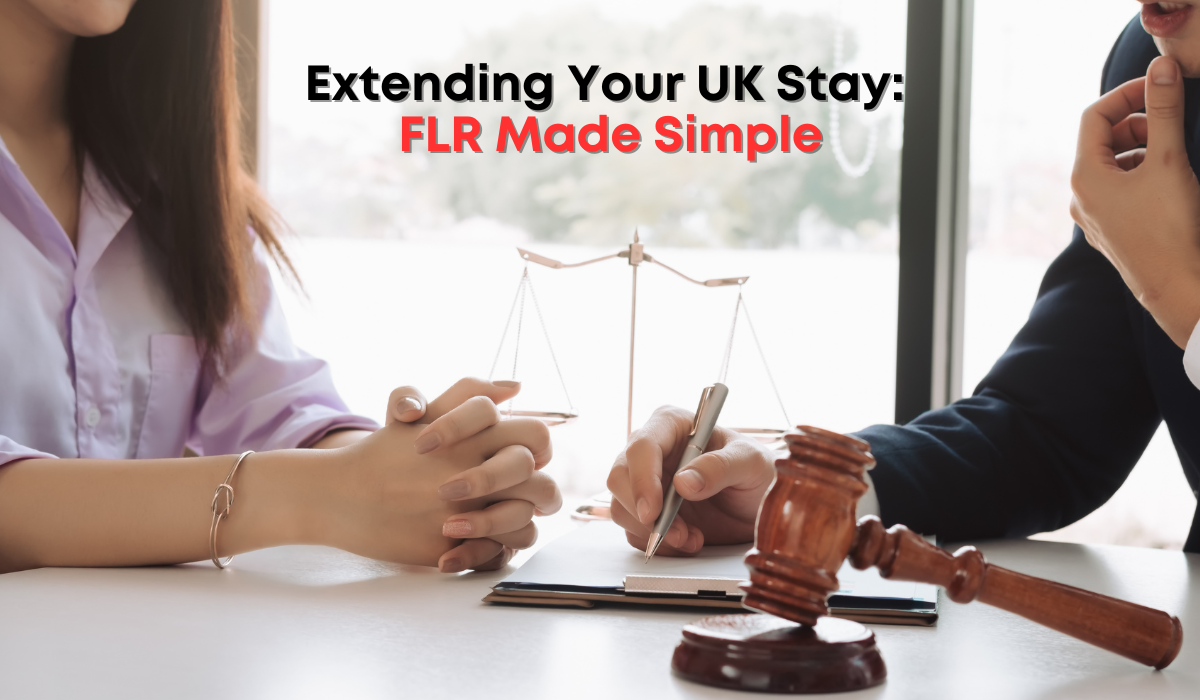For many non-British nationals living in the UK, applying for Further Leave to Remain (FLR) represents a pivotal stage in their immigration journey. Whether seeking to extend their stay based on family ties or private life, understanding the nuances of this application process is essential for a successful outcome. This reflective guide unpacks the complexities of FLR, exploring its categories, requirements, and key steps while providing practical advice for applicants.
What is Further Leave to Remain?
Further Leave to Remain (FLR) allows individuals to extend their legal stay in the UK beyond the validity of their initial visa. FLR applications typically fall under two main categories:
- FLR (M): For individuals extending their stay due to their relationship with a British citizen or a person with settled status in the UK. This category commonly applies to spouses, civil partners, or dependent children. Successful applicants under FLR (M) are generally granted an extension of 2.5 years and may become eligible for Indefinite Leave to Remain (ILR) after five years of continuous residence.
- FLR (FP): This category caters to those applying on the grounds of family life (e.g., as a parent of a British child) or private life in the UK. Unlike FLR (M), the FLR (FP) route may lead to ILR after ten years of continuous residence.
Key Requirements for FLR Applications
To successfully apply for FLR, applicants must provide robust evidence to meet several eligibility criteria. Below are the essential components of a complete application:
- Proof of Identity: A valid passport or travel document is crucial to verify the applicant’s identity.
- Proof of Relationship: Documents such as marriage certificates, civil partnership certificates, or birth certificates of dependent children are required.
- Financial Requirements: Applicants must demonstrate they have adequate financial resources to maintain themselves without recourse to public funds. This may involve providing payslips, bank statements, or proof of employment.
- Accommodation Details: Evidence of adequate housing that meets UK living standards is necessary.
- English Language Proficiency: Applicants need to prove their ability to communicate in English, either through an approved language test or by providing academic qualifications recognized by UK NARIC.
Step-by-Step Application Process
The application process for FLR involves the following critical steps:
- Assess Eligibility: Determine whether your circumstances align with the FLR (M) or FLR (FP) category.
- Prepare Documentation: Collect all necessary supporting documents. These serve as evidence to substantiate your claims regarding identity, relationship, finances, and accommodation.
- Complete the Online Application: Select the appropriate form—FLR (M) for partners or dependent children and FLR (FP) for family/private life extensions.
- Pay Application Fees: The application fee and the Immigration Health Surcharge (IHS) must be paid upfront. The fees vary depending on the visa category and the length of extension sought.
- Submit Biometric Information: Applicants must attend a designated UKVCAS service point to provide fingerprints and a photo.
- Await a Decision: Processing times can vary, so it is advisable to submit your application well before your current leave expires.
Common Challenges and Practical Advice
The FLR application process can be intricate, with minor errors leading to delays or even refusals. For example, failure to meet the financial threshold or provide sufficient evidence of a genuine relationship can jeopardize an application. Therefore, applicants are encouraged to seek guidance from experienced immigration solicitors. Professional advice can ensure that the application is both comprehensive and compelling, significantly improving the likelihood of a positive outcome.
Reflecting on the Role of FLR in Building a Life in the UK
For many, FLR is more than just an extension of their stay; it is a pathway to stability, integration, and eventual settlement. By navigating this complex process, individuals can secure their place within British society, contributing to its rich cultural and economic fabric. However, the importance of careful preparation and compliance with immigration rules cannot be overstated.
As an immigration solicitor, I have witnessed how a well-prepared FLR application can transform lives, enabling families to stay united and individuals to achieve their aspirations. For those embarking on this journey, meticulous planning and expert support are key to unlocking the opportunities that lie ahead.
Final Thoughts
The journey toward Further Leave to Remain requires diligence, precision, and a clear understanding of UK immigration law. By following the steps outlined above and seeking professional advice where necessary, applicants can confidently navigate this critical process. Whether extending your stay for family or personal reasons, FLR serves as a cornerstone in building a secure and prosperous future in the UK.
Get in touch: For a comprehensive understanding of your options or queries on UK immigration matters, contact GigaLegal Solicitors at 02074067654 or click here to book a no-obligation consultation with an immigration expert.


